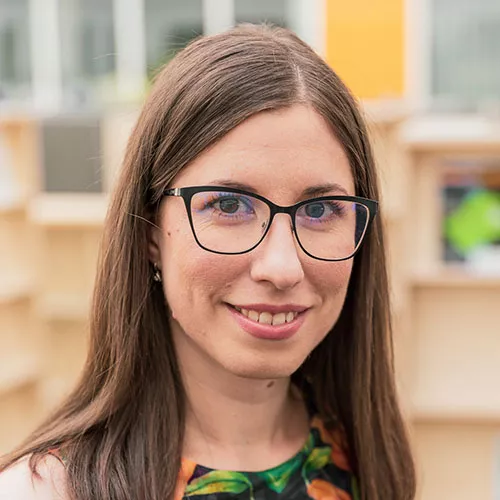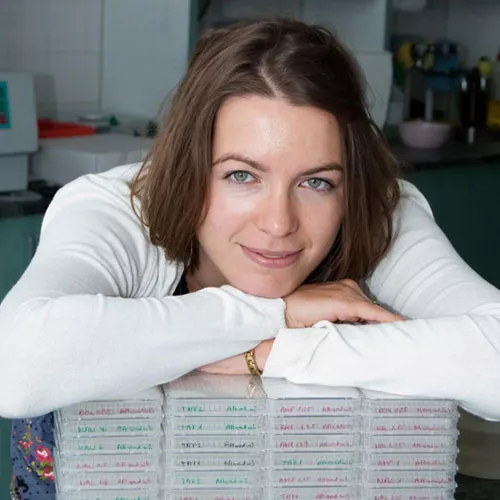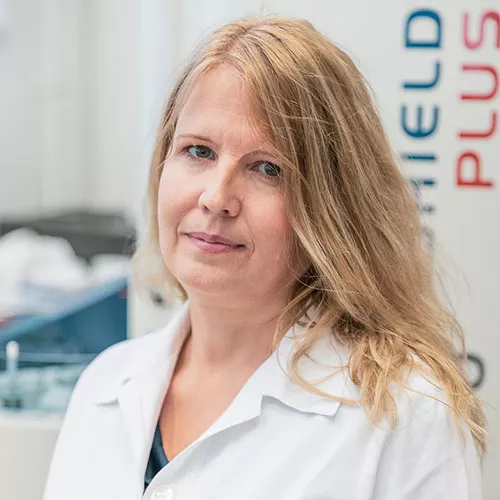The 2022 winners of the L'Oréal-UNESCO "For Women in Science" awards, which go to exceptionally talented female Hungarian researchers, were presented at a ceremonial event. Receiving the prestigious recognition for their outstanding research results were Anita Bajusz-Rácz, a scientific associate with the ELKH Research Centre for Natural Sciences (TTK) and Réka Spohn, an associate with the Biological Research Centre (BRC).
The L'Oréal-UNESCO "For Women in Science" award, with a total prize of six million forints and now being conferred on exceptionally talented Hungarian female researchers for the 20th time, was presented at an event held at the Hungarian Academy of Sciences on September 29. Appearing as a new category alongside material and life sciences on the occasion of this anniversary was the field of formal sciences, thus increasing the number of winners to three. The founders of the award aim to ensure that as many talented and successful women as possible become known and recognized in their respective fields.

Anita Bajusz-Rácz, a scientific associate at TTK uses computer modeling to examine the properties of drug candidates. By applying machine learning the modeling methodology is able to predict the drug safety properties of as many as several million possible active ingredients in a short time, and thus exclude those that will definitely not be used during the pharmaceutical development process. While it might take days to examine a molecule under traditional laboratory conditions, results can be obtained within minutes through the use of the chemist's computational models based on artificial intelligence. The new algorithms may be suitable for predicting side effects and the main steps of interaction with the body, from the intake of a drug to its complete elimination from the system. With their help, it can thus be determined whether the tested active ingredient can be used for medical treatments.

Biologist Réka Spohn, an associate at BRC is researching how bacteria become resistant to antibiotics. Bacteria can adapt very quickly to any environmental changes, including antibiotic treatments. The researcher is currently investigating the relationship between biocides, which in everyday life occur mainly in the form of preservatives, and antibiotics in the development and transfer of resistance. Hypotheses indicate that biocides entering the human body may help bacteria become resistant even to antibiotics. The biologist aims to use her research results to contribute to the development of products that enable bacterial infections to be cured more quickly and effectively.

Together with her colleagues, Anasztázia Hetényi, associate professor at the Institute of Medicinal Chemistry at the Albert Szent-Györgyi Faculty of Medicine of the University of Szeged has developed a special carrier material that can pass through the cell membranes of mammals and deliver the active substance into the cell. What the researcher and her team would like to do is test the method they have developed with active biological agents that can be used to identify and influence disease-causing processes within living cells.
Over the past 20 years, 54 Hungarian researchers have received the scholarship, so L'Oréal has so far distributed more than HUF 74 million to them. Several of the honorees' students have also received the recognition, and the award has also brought together researchers and research groups who later worked together on joint projects. The scholarship goes solely to support female Hungarian researchers, who can apply for it from anywhere in the country. The patron of the program is the Hungarian Academy of Sciences.